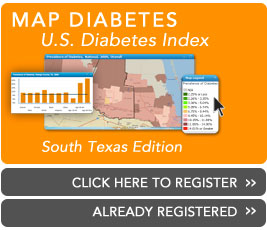Posted by Staff
Clinical Trials
Thursday, February 28th, 2013
Diabetes Care: October 15, 2012
OBJECTIVE Patients with the metabolic syndrome (MetS) have impaired insulin-induced enhancement of vasodilator responses. The incretin hormone glucagon-like peptide 1 (GLP-1), beyond its effects on blood glucose, has beneficial actions on vascular function. This study, therefore, aimed to assess whether GLP-1 affects insulin-stimulated vasodilator reactivity in patients with the MetS.
RESEARCH DESIGN AND METHODS Forearm blood flow responses to acetylcholine (ACh) and sodium nitroprusside (SNP) were assessed in MetS patients before and after the addition of GLP-1 to an intra-arterial infusion of saline (n = 5) or insulin (n = 5). The possible involvement of oxidative stress in the vascular effects of GLP-1 in this setting was investigated by infusion of vitamin C (n = 5). The receptor specificity of GLP-1 effect during hyperinsulinemia was assessed by infusing its metabolite GLP-1(9-36) (n = 5). The metabolic actions of GLP-1 were also tested by analyzing forearm glucose disposal during hyperinsulinemia (n = 5). Read more
Posted by Staff
News
Thursday, February 21st, 2013
Diabetes Care: February 15, 2013
OBJECTIVE To determine the prevalence of people with diabetes who meet hemoglobin A1c (A1C), blood pressure (BP), and LDL cholesterol (ABC) recommendations, and their current statin use, factors associated with goal achievement, and changes in the proportion achieving goals between 1988 and 2010.
RESEARCH AND DESIGN METHODS Data were cross-sectional from the National Health and Nutrition Examination Surveys (NHANES) from 1988–1994, 1999–2002, 2003–2006, and 2007–2010. Participants were 4,926 adults aged ≥20 years who self-reported a previous diagnosis of diabetes and completed the household interview and physical examination (n = 1,558 for valid LDL levels). Main outcome measures were A1C, BP, and LDL cholesterol, in accordance with the American Diabetes Association recommendations, and current use of statins. Read more
Posted by Staff
News
Thursday, February 21st, 2013
JCEM: February 13, 2013
Context: Epidemiological studies have observed associations between diabetes and a number of different cancers. Yet the association with cancer overall and the interrelationship of diabetes and obesity with cancer have been unclear.
Objective, Design, Setting, and Participants: We evaluated the association between self-reported diabetes and cancer incidence in the NIH-AARP (National Institutes of Health-American Association of Retired Persons) Diet and Health Study, a prospective cohort in which 295 276 men and 199 591 women completed a questionnaire in 1995–1996 and were followed up for cancer through 2006. Read more
Posted by Staff
News
Thursday, February 21st, 2013
Diabetes Care: February 7, 2013
OBJECTIVE Although screening for diabetes and prediabetes is recommended, it is not clear how best or whom to screen. We therefore compared the economics of screening according to baseline risk.
RESEARCH DESIGN AND METHODS Five screening tests were performed in 1,573 adults without known diabetes—random plasma/capillary glucose, plasma/capillary glucose 1 h after 50-g oral glucose (any time, without previous fast, plasma glucose 1 hour after a 50-g oral glucose challenge [GCTpl]/capillary glucose 1 h after a 50-g oral glucose challenge [GCTcap]), and A1C—and a definitive 75-g oral glucose tolerance test. Costs of screening included the following: costs of testing (screen plus oral glucose tolerance test, if screen is positive); costs for false-negative results; and costs of treatment of true-positive results with metformin, all over the course of 3 years. We compared costs for no screening, screening everyone for diabetes or high-risk prediabetes, and screening those with risk factors based on age, BMI, blood pressure, waist circumference, lipids, or family history of diabetes. Read more
Posted by Staff
News
Thursday, February 21st, 2013
BMJ Quality Safety: February 5, 2013
Objective To assess whether quality indicators for treatment of cardiovascular and renal risk factors are associated with short-term outcomes in patients with diabetes.
Design A prospective cohort study using linear regression adjusting for confounders.
Setting The GIANTT database (Groningen Initiative to Analyse Type 2 Diabetes Treatment) containing data from primary care medical records from The Netherlands. Read more
Posted by Staff
News
Thursday, February 21st, 2013
Am J Clin Nutr: January 30, 2013
Background: There is evidence that reducing blood glucose concentrations, inducing weight loss, and improving the lipid profile reduces cardiovascular risk in people with type 2 diabetes.
Objective: We assessed the effect of various diets on glycemic control, lipids, and weight loss. Read more
Posted by Staff
Minority Diabetes Reports
Thursday, February 21st, 2013
SAGE: February 14, 2013
Purpose The purpose of this study is to investigate the relationship among spiritual and religious beliefs and practices, social support, and diabetes self-care activities in African Americans with type 2 diabetes, hypothesizing that there would be a positive association.
Method This cohort study used a cross-sectional design that focused on baseline data from a larger randomized control trial. Diabetes self-care activities (Summary of Diabetes Self-Care Activities) and sociodemographic characteristics were assessed, in addition to spiritual and religious beliefs and practices and social support based on the Systems of Belief Inventory subscales I (beliefs and practices) and II (social support). Read more



























